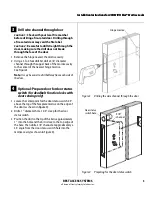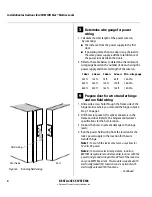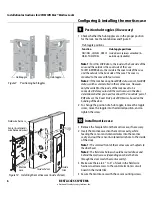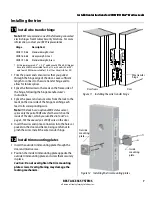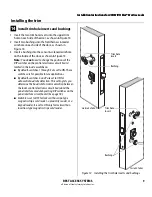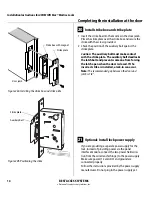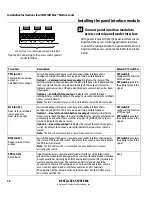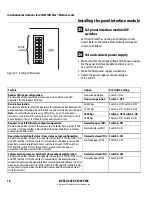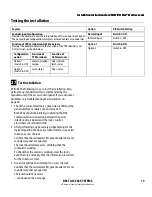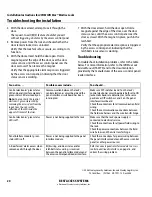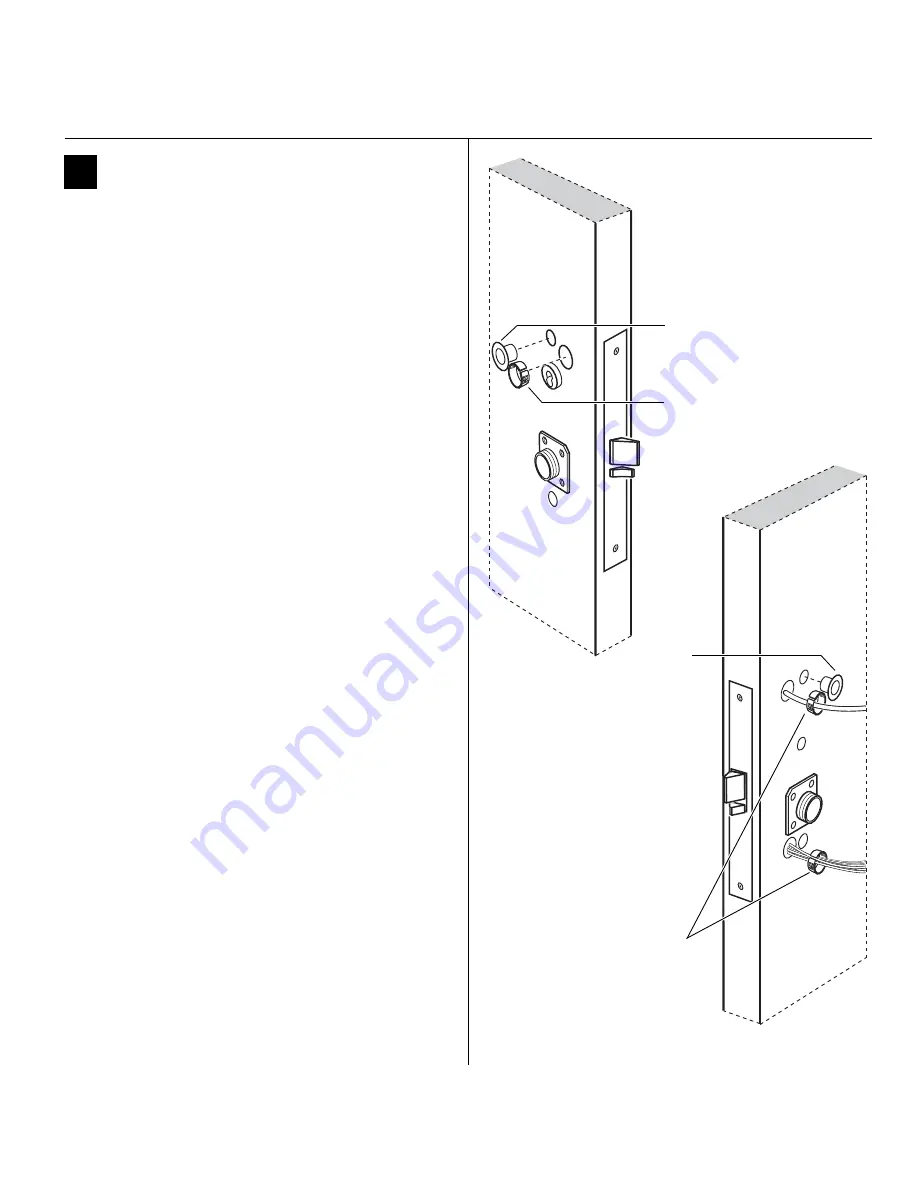
Installation Instructions for 45HM IDH Max® Mortise Locks
BEST ACCESS SYSTEMS
a Division of Stanley Security Solutions, Inc.
9
Installation Instructions for 45HM IDH Max® Mortise Locks
Installing the trim
14
Install trim hole inserts and bushings
1 Insert the two trim hole inserts into the upper trim
hole on each side of the door, as shown in Figure 14.
2 Insert two bushings into the field harness & reader
wire hole on each side of the door, as shown in
Figure 14.
3 Insert a bushing into the sensor & solenoid wire hole
on the inside of the door, as shown in Figure 14.
Note:
You do
not
need to change the positions of the
DIP switches on the control electronics circuit board
located in the inside escutcheon.
■
By default, switches 1 through 5 are set to ON. These
switches are for possible future applications.
■
By default, switches 6 and 7 are set to ON for
automatic baud rate detection. This setting lets you
determine the baud rate for communication between
the lock’s control electronics circuit board and the
panel interface module by setting DIP switches on the
panel interface circuit board. (See page 18.)
■
Switch 8 is set to OFF for locks with a swipe-type
magnetic stripe card reader, a proximity reader, or a
keypad reader; it is set to ON only for locks with an
insertion-type magnetic stripe card reader.
Figure 14 Installing the trim hole inserts and bushings
Outside of door
Trim hole
insert
Bushing
Trim hole
insert
Bushings
Inside of door



